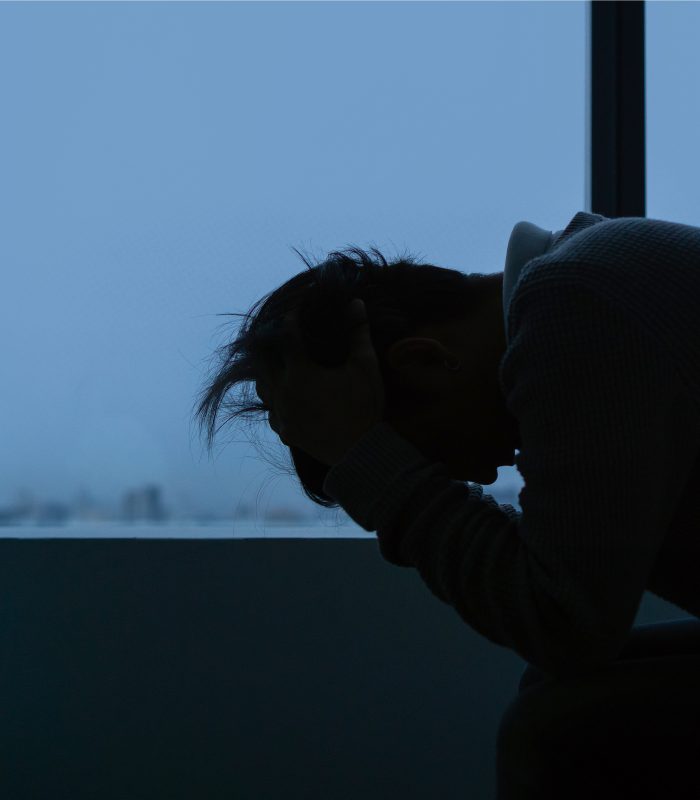Cannabis made the difference between life and death for my severe anxiety and depression.
My name is Erin and I’ve always had severe anxiety and some depression.
Things really fell apart for me when my fiancé died in a horrible accident. They increased all of my meds and added a bunch more. I was in and out of mental institutions being diagnosed with things like “psychosis” and “bipolar.” I was on 800mg of Seroquel, Latuda, Ativan, Ambien, Tramidol, Klonopin and those are just the ones I can remember off the top of my head. I was taking a handful of pills every few hours.
And I was a zombie with intense hallucinations…
Then I was hospitalized with acute pancreatitis because my body just couldn’t handle it anymore.
One day, an old friend of mine turned me onto cannabis. It has made me feel the closest thing to “normal” in years. Before cannabis, dying sounded like a good idea.
I use different strains for the daily anxiety and I use Silver Back for insomnia. I use edibles during the day and smoke at night.
I’ve been off all scripts for 2 years now, which ironically, is the last time I was in a psych ward.
Without cannabis, I know I wouldn’t be here anymore.
From RxLeaf: The Endocannabinoid System and Mental Health
The endocannabinoid system (ECS) maintains homeostasis throughout the body, with cannabinoid receptors that send signals to the brain. And because of this signaling, the functioning of the ECS may directly impact mental health.
For example, a study published in Molecular Psychiatry (2004) showed an upregulation of CB1 receptors in the prefrontal cortex of subjects with major depression.[1]Hungund, B L, et al. Upregulation of CB 1 Receptors and Agonist-Stimulated [ 35 S]GTP γ S Binding in the Prefrontal Cortex of Depressed Suicide Victims. Nature News, Nature Publishing Group, 27 … Continue reading
Scientists studied the brain tissue of ten individuals who had died by suicide and compared them with ten normal controls. Their results suggested that individuals with depression showed an increase in CB1 receptor-stimulated binding. They concluded that pharmaceutical cannabinoid therapy may be a possible treatment for depression, but the idea needs extensive further study.
Cannabinoids and Anxiety Levels
A study published in the Alcohol and Drug Abuse Institute (2019) also found that cannabinoids could affect anxiety levels. But dosages were key — they concluded that THC could lower anxiety if administered in a low dose. Higher dosages of THC actually caused greater anxiety. CBD showed an ability to lower anxiety at every dosage level.[2]Stoner, Susan A. Effects of Marijuana on Mental Health: Anxiety Disorders. Alcohol and Drug Abuse Institue, University of Washington, June 2017, adai.uw.edu/pubs/pdf/2017mjanxiety.pdf
Some strains of cannabis have also been beneficial in helping patients with insomnia. Cultivars high in terpenes like myrcene can give some consumers a good night’s rest. A study published in the Journal of Phytotherapy and Phytopharmacology (2002) discovered that myrcene could potentially help manage sleep disorders like insomnia, as well as anxiety.[3]do Vale TG;Furtado EC;Santos JG;Viana GS; Central Effects of Citral, Myrcene and Limonene, Constituents of Essential Oil Chemotypes From Lippia Alba (Mill.) N.e. Brown. Phytomedicine : International … Continue reading
The Individual Nature of the ECS
While the ECS may affect mental health, cannabinoid therapy for mental illness does not come with a one-size-fits-all formula. What may be beneficial for one patient may actually be detrimental for another, even with many of the same symptoms. Mental health issues are highly individual. Further, the ECS in every human body is different.
That’s why cannabinoid therapy for mental illness such as anxiety, psychosis, insomnia and depression should be approached with the utmost care. A review reported on by Time in 2019 concluded that cannabis should not be used for mental health therapy. Yet, surveys of patients have showed that more and more people with mental illnesses are turning to some kind of cannabinoid therapy to ease their symptoms.
When treating anxiety, psychosis, depression, insomnia or other mental health issues, the first step is to get professional support. Talk to a healthcare professional about incorporating a cannabis treatment, since it may not be appropriate for some mental health problems. For some individuals with underlying conditions, cannabis may induce psychosis. Once cleared by a physician, start low and slow and experiment with dosages and strains.
Cannabis therapy may provide relief for some. But, patients should approach it with caution.
References





